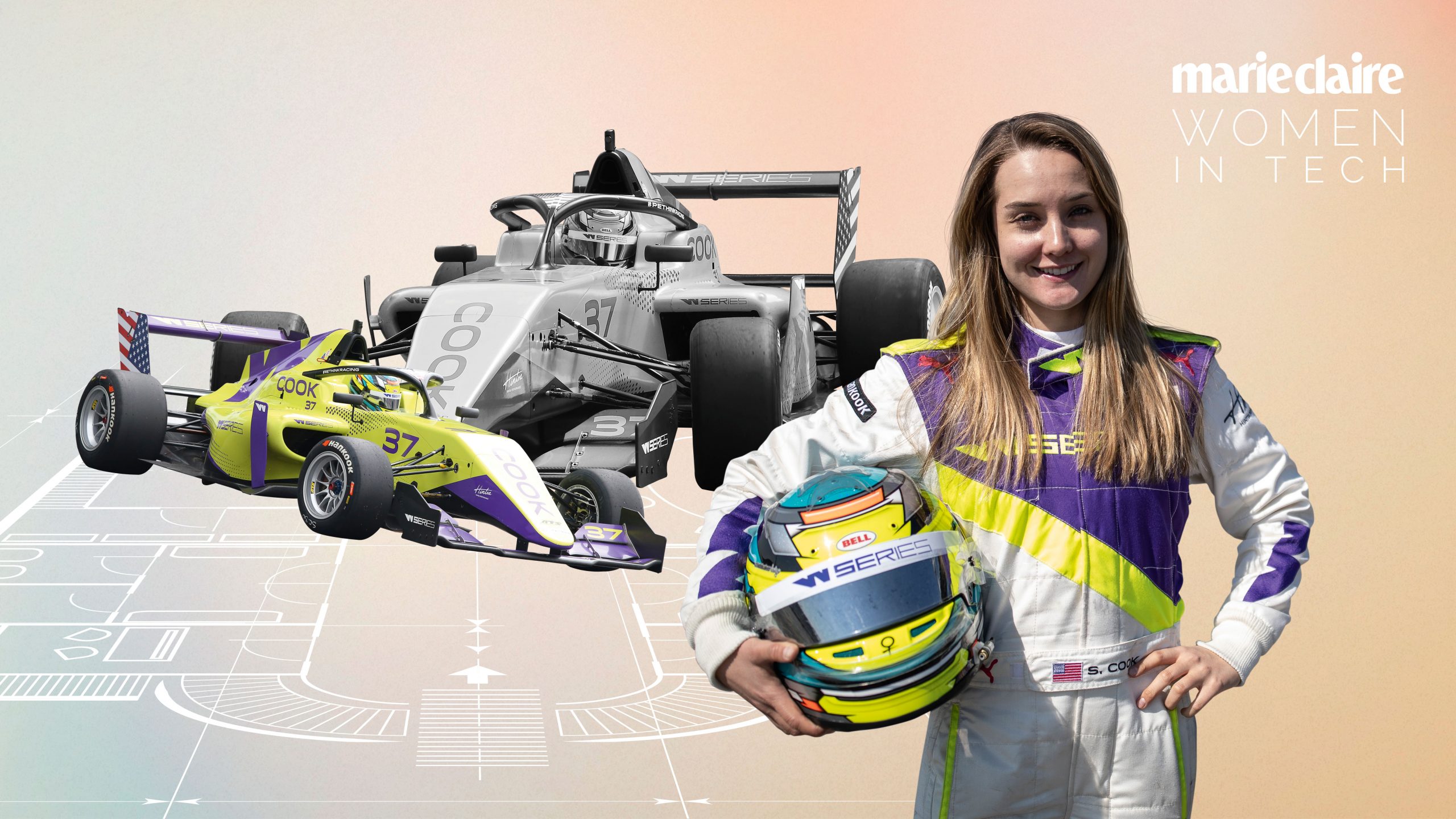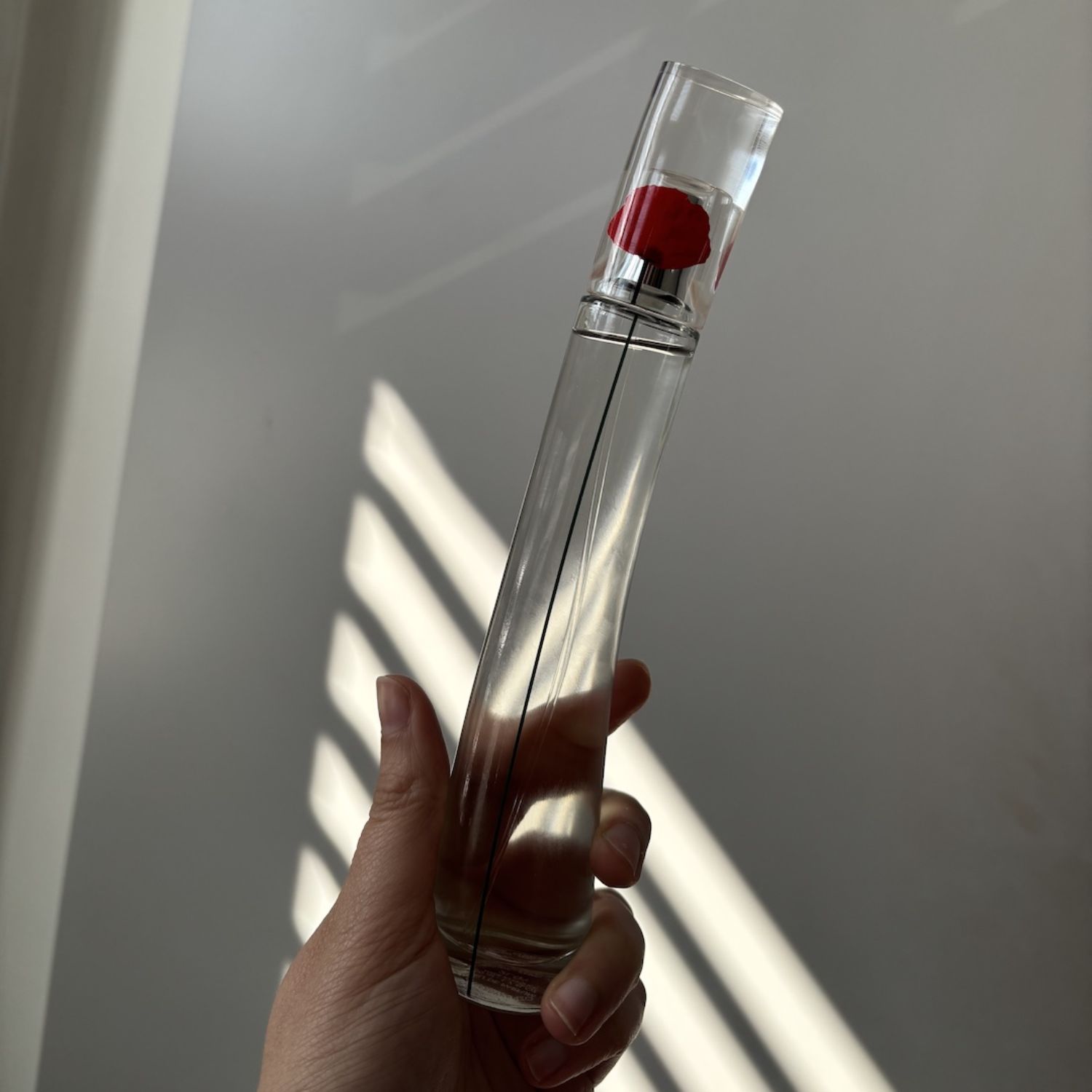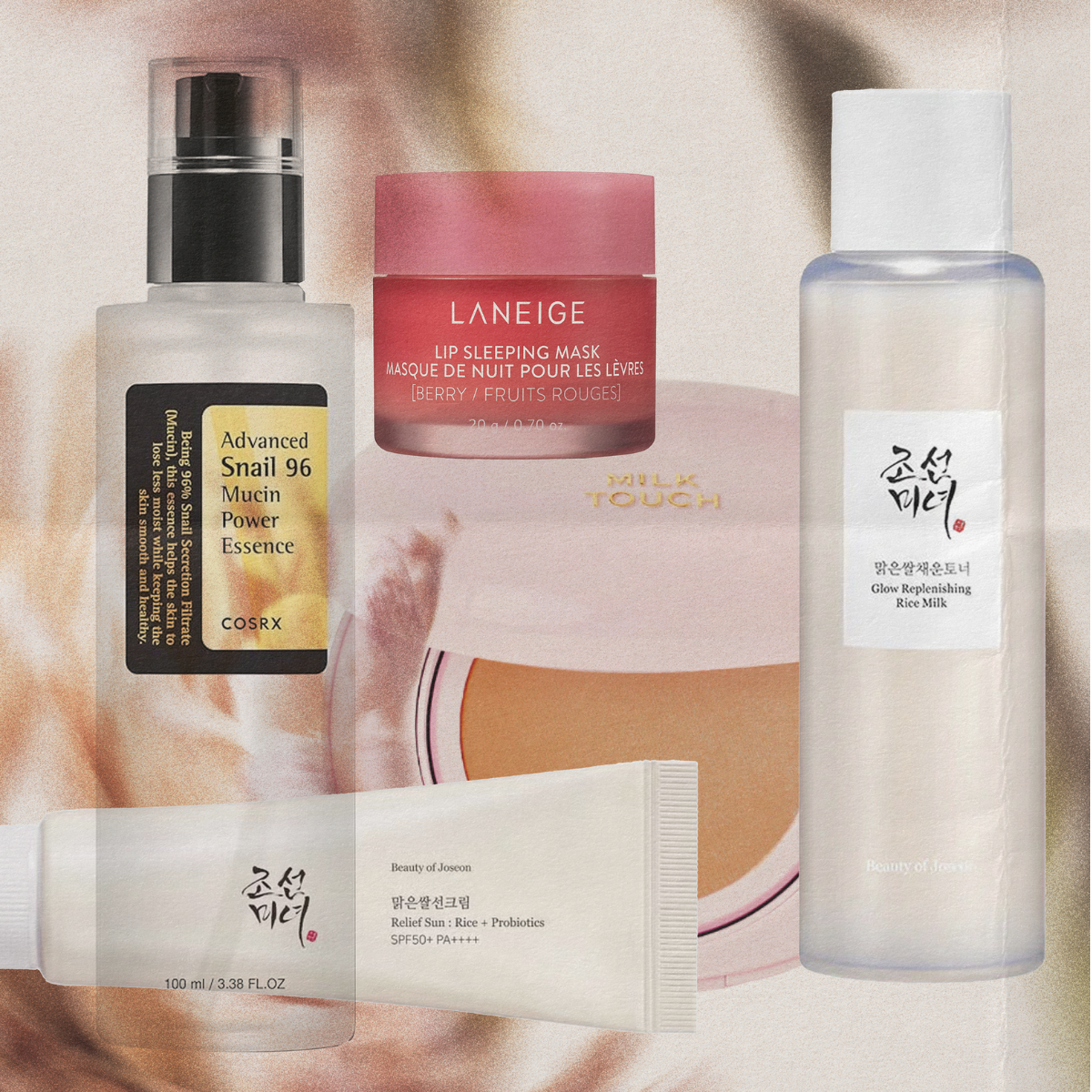The soon-to-be head F1 racing engineer: 'It's 100% an achievable career for women'

Join Marie Claire and Entrepreneur First on Friday 12th Feb at 1pm for a special STEM panel in light of National Women and Girls in Science day. Editor in Chief of Marie Claire, Andrea Thompson, and Co-founder of Entrepreneur First, Alice Bentick, speak to a host of successful female founders who are making waves across their industries.
She was the first female to win the SKUSA Pro Tour National Championship and, post-college, Sabré Cook earned a place as a trainee with the Infiniti Engineering Academy, working at Renault F1. As Marie Claire launches Women in Tech week, she offers her words of wisdom to women wanting to break into STEM
Ever heard of Sabré Cook? At only 26 years old, the racing car driver and engineer has a world championship, Renault F1 work experience, and the title of first female to win the SKUSA Pro Tour National Championship under her belt. She competed in the inaugural W Series season in 2019 and came 12th, and she's also trained with the Infiniti Engineering Academy, working at Renault F1, focussing on composite design.
So, what does Sabré have to say to any women who may be considering a career in STEM but are unsure where to start? Engineering, especially, can come across as a male-dominated industry, with little to no clearly paved career progressions for women.
But that's where you're wrong - or so she reckons. She has lots to say about the parallels of being a woman in racing and in engineering (two heavily male-dominated industries), as well as thoughts on how more girls could be encouraged to pursue a STEM career at a younger age.
Keep reading.
Marie Claire Newsletter
Celebrity news, beauty, fashion advice, and fascinating features, delivered straight to your inbox!
Sabré Cook: 'If you're interested in a career in engineering, go for it'
"I was born and raised in Colorado in the US, grew up running around a karting track that my dad and his family built. My Dad used to race Motorcross and supercross professionally. He and my mother didn't want us to get into motorcycling racing, so he introduced us to carting."
"I was about eight years old when I drove for the first time. I progressed into more serious racing events, and into the national and international series. I won eight state championships, three world championships, three national championships, and yet I just never had enough funding to move to cars."
"It was 2017 before I had anyone step up and help with the funding. I did some amateur SCCA racing, and pulled a little bit of budget together to do some USF4 races and USF2000 races in 2018. Then I did the W series in 2019, and a couple of New Pro races and some GT races last year."
"For engineering, I graduated from Colorado School of Mines at the end of 2017, and won the Infinity Engineering Academy in 2018. That gave me a job to come over and work in the UK for Infinity and Renaut F1 in 2019."
"I've always had a passion for both racing and engineering. I started to get really obsessed with racing when I was about ten years old, but I was always one of those kids who really enjoyed school and geeked out about math from the third grade. I stuck with both and tried to balance both. That way, I made sure I could have a stable career progression whatever path I chose."
Following your role models
"I was lucky to have some really amazing teachers all the way through middle school and high school that fostered my desire to learn and really encouraged and showed that school could be cool and used for all these amazing things."
"When I started my undergrad, I remember meeting two professors who had previously worked in motorsports, in the mechanical engineering industry. They were the professors in the mechanical department, so were obviously really interested in what I did. They were very understanding, and helped me manage my time as best I could, for both racing and engineering."
Why aren't more women encouraged into STEM careers?
"I think it's a combination of things. Obviously, women aren't as encouraged. I was very lucky that my parents didn't care if I was a girl or a boy. They said, 'if that's what you want to do, that's what you want to do'. You see a lot of sisters go to the track with their brothers and the brother's race but the sisters don't. It's a matter of young girls being encouraged and being allowed to pursue those opportunities."
"There's also not a lot of female role models today as women often aren't encouraged to start. There's such a disparity as women aren't encouraged to start. It's like anything in life: if you see someone else doing it, and if you can visualise it as a tangible career path for yourself, you're more likely to pursue that. If you can follow the steps of a role model, you're more likely to follow a career path. More coverage would definitely help."
Keen to follow a career in engineering, but not sure where to start?
"If you're interested in racing, or engineering, or anything of the sort, it's 100% an achievable career for women. I've met women who've said, 'I didn't know we could be engineers, or race car drivers, I didn't know that was an option!'."
"That breaks my heart. If you're interested in something, go for it. Ask questions. If you're really passionate about something and you really want to learn more, we're blessed with so many resources today. You can research online, or reach out to professors and express your interest. Most teachers will be ecstatic that you're asking questions."
"It's all about finding the right mentors. Usually, these things fall into place if you're willing to put in the work, be passionate about something, and not be afraid to pursue it."
What about if STEM is your passion but you don't know what career path to follow?
"For those women who don't know about getting into a career in STEM, usually there are tonnes of clubs or classes available. There are engineering clubs, robotics clubs, STEM classes, or more."
"Don't be afraid that you're going to sign up for robotics club and be the only girl in there. It's probably a high possibility, but it's ok to be uncomfortable, it's ok to do things that are a bit awkward. The greater the risk, the bigger the reward. Just try and find some good resources - it's being pushed so much to support women in these careers now. Help is out there, people just don't realise."
"Say a women engineer lives near you - why not try reach out and ask for their advice?"
"For us to grow, as women, collectively together, I encourage women to support each other. I feel like we're in constant competition with each other. So much of that gets bred into our society, and rather than supporting each other and celebrating each other's successes, we tear each other down. It starts at the top level. We have more and more female CEOs in these big corporations and we need them to support these women coming up and doing other things. They're the big decision-makers now and we need their support."

Ally Head is Marie Claire UK's Senior Health and Sustainability Editor, nine-time marathoner, and Boston Qualifying runner. Day-to-day, she heads up all strategy for her pillars, working across commissioning, features, and e-commerce, reporting on the latest health updates, writing the must-read wellness content, and rounding up the genuinely sustainable and squat-proof gym leggings worth *adding to basket*. She also spearheads the brand's annual Women in Sport covers, interviewing and shooting the likes of Mary Earps, Millie Bright, Daryll Neita, and Lavaia Nielsen. She's won a BSME for her sustainability work, regularly hosts panels and presents for events like the Sustainability Awards, and is a stickler for a strong stat, too, seeing over nine million total impressions on the January 2023 Wellness Issue she oversaw. Follow Ally on Instagram for more or get in touch.
-
 As a perfume-obsessed beauty editor, I can’t believe it’s taken me 25 years to try this classic Y2K scent
As a perfume-obsessed beauty editor, I can’t believe it’s taken me 25 years to try this classic Y2K scentIt was worth the wait
By Mica Ricketts
-
 I'm a 9x marathoner who likes looking and feeling their best. Enter: the functional but fashionable race day outfits I swear by
I'm a 9x marathoner who likes looking and feeling their best. Enter: the functional but fashionable race day outfits I swear byThese outfit formulas almost guarantee you a PB.
By Ally Head
-
 We're not for panic buying, but here's how Trump's tariffs might affect your K-beauty spending habits
We're not for panic buying, but here's how Trump's tariffs might affect your K-beauty spending habitsThey could impact the industry globally
By Nessa Humayun